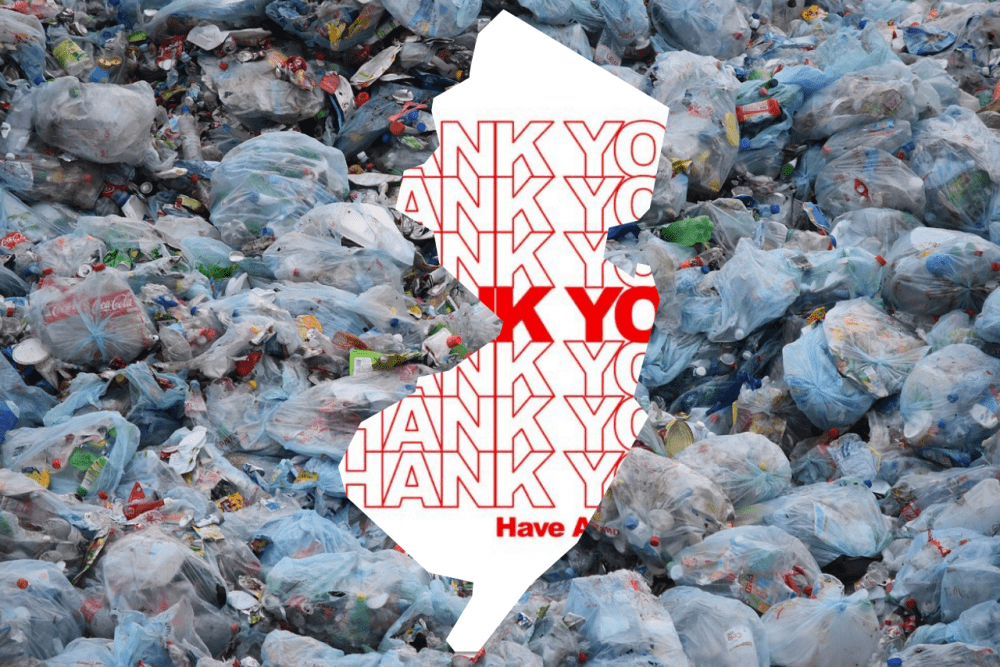Update February 1, 2024: Since publishing, it has been discovered that Freedonia Group, the organization responsible for conducting the study and case against plastic bag bans, may have done so for self-serving reasons. According to Litter Free NJ, the report released by Freedonia Group was commissioned by the American Recyclable Plastic Bag Alliance. In other words, the study was paid for by the plastic industry.
Another report released in January, conducted by Environment America, the U.S. Public Interest Research Group Education Fund, and Frontier Group, highlighted the effectiveness of nationwide plastic bag bans in significantly reducing plastic usage and pollution.
It is worth noting that while plastic consumption has risen with the increase of reusable, polypropylene-derived bags, that plastic pollution has plummeted—the original stated purpose of the ban.
In 2022, New Jersey—joining a group of other states—banned single-use plastic bags from stores. This new policy meant that reusable grocery bags, or something similar, were required to shop if wanting a bag for your items. While this change was meant to minimize plastic consumption, it actually did the opposite; at least according to one study.
Overnight, the plastic bags from the grocery store checkout disappeared, and stacks of reusable grocery bags appeared—usually sold for a couple of bucks. Many stores such as Whole Foods offer discounts when you bring your own bag, albeit a negligible discount at best.
However, since the change, there have been naysayers, and they might have been right all along.
NJ Plastic Bag Ban Creates More Plastic Use
According to a study conducted by Freedonia Report, the single-use bag ban led to a 60% percent decrease in “total bag volume.” While this seems to be a net positive, the state also (as planned) saw more people turn to reusable bags for their shopping. Thus, despite the decrease in single-use bag production, plastic consumption actually increased because of the material used in manufacturing the reusable grocery bags.
The study states: “6x more woven and non-woven polypropylene plastic was consumed to produce the reusable bags sold to consumers as an alternative. Most of these alternative bags are made with non-woven polypropylene, which is not widely recycled in the United States and does not typically contain any post-consumer recycled materials.”
Citing the materials used as being more harmful than the former, the report continues, “This shift in material also resulted in a notable environmental impact, with the increased consumption of polypropylene bags contributing to a 500% increase in greenhouse gas (GHG) emissions compared to non-woven polypropylene bag production in 2015. Notably, non-woven polypropylene, NWPP, the dominant alternative bag material, consumes over 15 times more plastic and generates more than five times the amount of GHG emissions during production per bag than polyethylene plastic bags.”
Freedonia Report also mentions the use of at-home grocery services. Along with the ban on single-use bags, many NJ residents turned to grocery delivery services—which provides reusable bags with every purchase. These bags stack up in people’s homes, are not recycled, and thus, create a need for more production. The volume of plastics used drives upward with it.
Similarly, how often have you forgotten your bags at home? Requiring you to purchase more bags at the store. Not only is this an annoying extra cost, but now you are in possession of more bags that you don’t truly need.
Are Plastic Bans Helpful?
Targeting single-use plastic bags isn’t necessarily counterproductive in fighting general pollution and emissions. In fact, the plastic bag ban has greatly reduced pollution on highways, beaches, parks and public spaces in New Jersey. This is a net positive, and one that would not be possible without the ban. However, with the use of plastics still driving upward, we are left pondering whether there is a better way to go about the change. Unfortunately, when it comes to grocery shopping and the like, there doesn’t seem to be a viable solution that both decreases pollution and plastic consumption just yet.
What do you think about the ban on plastic bags? Is the fight ineffective, or is it building into something larger? Let us know below!
Peter Candia is the Food + Drink Editor at New Jersey Digest. A graduate of The Culinary Institute of America, Peter found a passion for writing midway through school and never looked back. He is a former line cook, server and bartender at top-rated restaurants in the tri-state area. In addition to food, Peter enjoys politics, music, sports and anything New Jersey.
- Peter Candiahttps://thedigestonline.com/author/petercandia/
- Peter Candiahttps://thedigestonline.com/author/petercandia/
- Peter Candiahttps://thedigestonline.com/author/petercandia/
- Peter Candiahttps://thedigestonline.com/author/petercandia/


